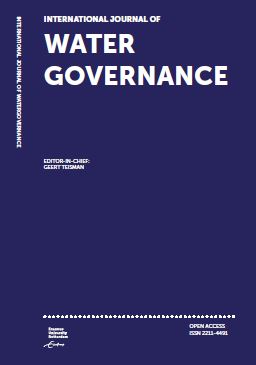Balancing the Discussion of Benefit Sharing in Transboundary Water Governance
Stressing the Long-Term Costs in an Empirical Example from Central Asia
Keywords:
Transboundary water, Benefit sharing, Long-term costs, Pumping stations, Central AsiaAbstract
Internationally the benefit sharing approach is promoted to encourage cooperation in transboundary water governance. Costs of cooperation are so far under researched. Attention of few international studies is limited to benefit and cost sharing practices for dam projects. Here, the case study looks at long-term costs of cooperation in an empirical example from Central Asia. In the Syr Darya Basin, a compensation package for constructing the Toktogul Reservoir on the Naryn in upstream Kyrgyzstan required Uzbekistan to shift water withdrawals from small transboundary tributaries to the main river. The shift of water allocation created long-term costs for Uzbekistan.
The paper highlights the challenges related to the originally perceived as beneficial compensation mechanisms (water swaps) within one basin and long-term cost implications. The need for revision of benefit sharing agreements to allow adaptation to new challenges is discussed. We stress the costs when existing benefit sharing arrangements are ignored whether in full or in part.
Downloads
Downloads
Published
How to Cite
Issue
Section
License
Copyright (c) 2018 https://creativecommons.org/licenses/by/4.0/

This work is licensed under a Creative Commons Attribution-NonCommercial-ShareAlike 4.0 International License.


